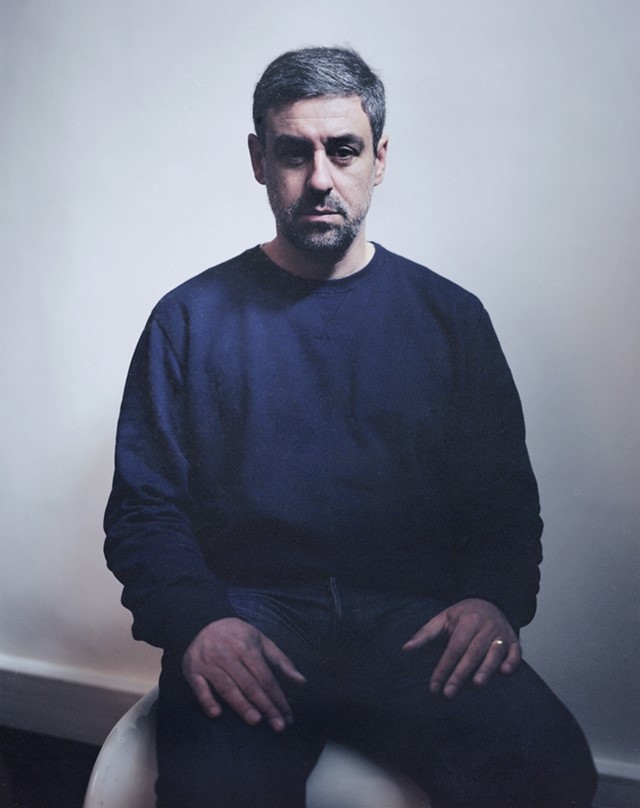Insiders talks to the man behind the fashion week soundtrack, producer Frederic Sanchez
In the two decades plus he’s spent as one of the most respected illustrateur sonore working today, Frédéric Sanchez has done everything from staging a Margiela show in total silence, remixing a Louise Bourgeois song for Helmut Lang to providing an unbearably poignant version of Somewhere Over The Rainbow for Marc Jacobs’ A/W10 show. But his long term collaborator Miuccia Prada threw him a curveball for her A/W14 shows – challenging him to work with live musicians. Says Sanchez, “Our first conversation was about the idea of performance and Pina Bausch has always been a very strong inspiration for her. Then we talked about the 1970s being a moment when avant-garde was strong probably because the young generation of that era was in reaction with what happened during the second world war. But all this was just thoughts, conversations, work in progress – because at the end, what you could really feel was a take on women very close to the heroines of Rainer Werner Fassbinder.” So while the woodwind concert group L'Usignolo performed live renditions of Kurt Weill's music, contrasted with the pounding metal of Rammstein for the men’s show; at the women’s show (aptly titled ‘Act II’), German actress (from Fassbinder’s ‘Lola) Barbara Sukowa sang a medley of Weill songs over a string quartet. It was a suitably cinematic flourish for a designer who’s never shied away from her filmic influences: the women stalking the runway becoming noirish and mysterious femme fatales straight out of a Fassbinder film.
"When you work in fashion you have to be very open minded and you need to look at everything. It has no frontier" — Frédéric Sanchez
For Sanchez, it exemplified everything he loves best about his job: “telling stories with sound and music, taking an audience on a sonic journey.” From a childhood obsessed with the high concept prog rock of King Crimson and David Bowie, the late 80s when he started working was an especially fertile time for cross-pollination – Michael Clark would commission Bodymap to design costumes for a dance recital and Peter Saville would team up with Yohji Yamamoto in between designing for Factory Records. “My interest in fashion appeared through music," he explains. "For me when you work in fashion you have to be very open minded and you need to look at everything. It has no frontier.” His first foray in the field was when a chance meeting with Martin Margiela led to scoring his very first show in 1988. “We just hit it off,” he recalls. “At that time we were both very influenced by experimental cinema, noisy pop and the Arte Povera movement. So for this first show I decided to tell a very sharp and precise story.” Complimenting Margiela’s offbeat approach to making clothes, Sanchez would make sound collages using reel to reel tape, “For me it was an anti-DJ way of making a soundtrack and this became my own trademark.”
Since then, he’s cultivated long-running collaborations with fashion’s biggest hitters from Marc Jacobs, Jil Sander, Givenchy, Helmut Lang and Prada and even extended his repertoire outside the realm of fashion – to exhibiting in galleries and devising installations for the likes of the Grand Palais, Musée du Louvre and Herzog & De Meuron's Prada store in Aoyama, Tokyo. As different as each designer’s aesthetic might seem, each season always starts with a conversation: “My starting point is always the story that the designer tells me. I like to be at the heart of the creation. I like them to tell me their stories and inspirations,” he says. “I look at the mood boards rather than the clothes.” While Sanchez is the master of a minimal, poetic soundtrack – “almost like a perfume, something so subliminal that the audience might not have noticed but they would remember the next day or next month” – he’s not averse to, say premiering Britney Spears’ ‘Work Bitch’ at Prada’s S/S14 show, synching with Prada’s theme of female empowerment. “I find my work most interesting when a designer lets me enter in his own world. It is never easy for a creative person to let his own emotions being translated by someone else. Trust and respect only happen through the time. What I like about music is that it is a way to communicate. It has something abstract that everyone can understand. People can then create their own images.”
Text by Kin Woo
